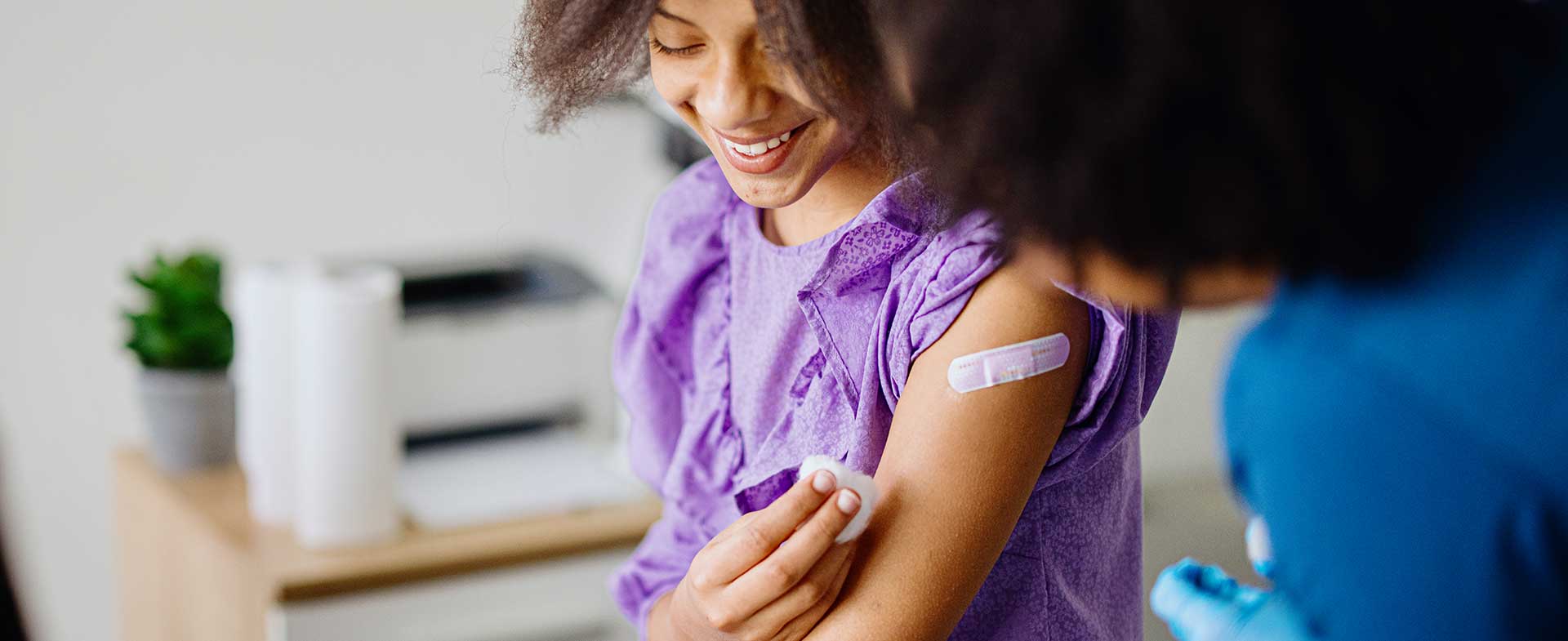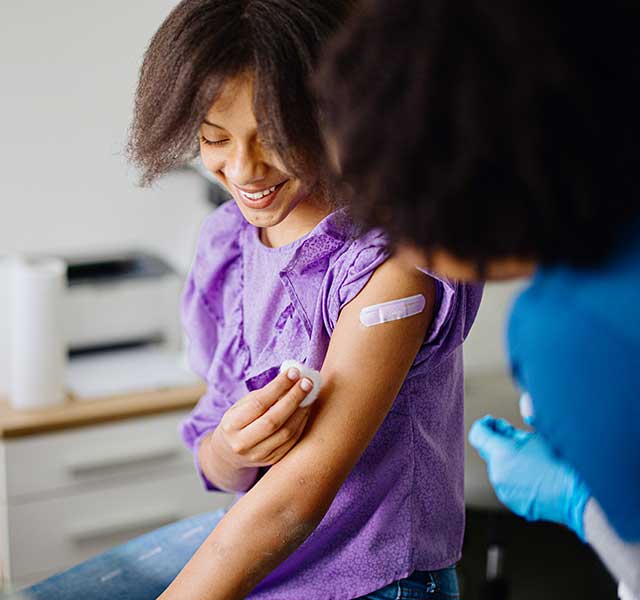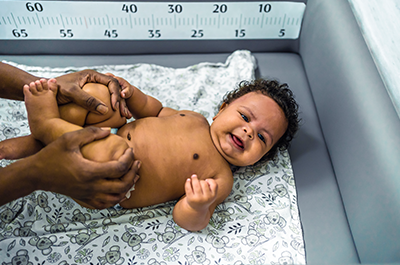Getting the HPV vaccine is so important—it protects you from contracting the human papillomavirus (HPV), a sexually transmitted infection that causes six types of cancers: cervical, vaginal, penile, anal, vulvar and oropharyngeal (or throat) cancer.
The Advisory Committee on Immunization Practices recommends HPV vaccination for adolescents between 11 and 12 years of age; however it is also appropriate for children ages 9 and 10 to receive the vaccine. Catch-up vaccination is recommended for males and females ages 12 to 45. But despite the proven safety and effectiveness of the HPV vaccine, vaccination rates are low. Scientists at Henry Ford Health collaborated with Duke Cancer Institute to find out why.
“Using CDC data, we found HPV vaccine hesitancy among parents decreased 5.5% annually from 2010 to 2012, then stayed the same from 2012 to 2020,” says Eric Adjei Boakye, Ph.D., an assistant scientist at Henry Ford Health who led the study. “But the proportion of parents citing safety or side effect concerns as a reason for refusing to vaccinate their children increased by 15.6% annually from 2010 to 2018.”
Here, Dr. Adjei Boakye shares the main reasons why parents choose not to get their kids vaccinated for HPV—and why they should.
1. Parents think the HPV vaccine isn’t necessary. “Parents who think the HPV vaccine isn’t necessary generally don’t believe in vaccines due to misinformation,” says Dr. Adjei Boakye. “But it is necessary—the HPV vaccine is one of only two cancer-prevention vaccines. The other is the hepatitis B vaccine to prevent liver cancer.”

Need A Pediatrician?
The HPV vaccine prevents 90% of HPV-associated cancers. In the United States, HPV causes virtually all cases of cervical cancer, 90% of anal cancers, 69% of vaginal cancers, 51% of vulvar cancers, 40% of penile cancers and 70% of oropharyngeal (or throat) cancers. Cancer won’t develop right away, but years after the virus is contracted.
2. Parents are worried about potential vaccine side effects. The HPV vaccine was approved for females in 2006 and for males in 2009. In the United States alone, more than 135 million doses have been given. “There aren’t any long-term side effects to worry about,” says Dr. Adjei Boakye. “A myth that’s circulating around social media is that the HPV vaccine causes infertility, but there is no truth to this.”
The most common side effects associated with the HPV vaccine are injection-site pain and body aches, which should go away within 48 hours.
3. Parents don’t know about the HPV vaccine. Even today, about 25% of people don’t know what HPV or the HPV vaccine is—and many people don’t know it causes cancer. “Or they think the vaccine is not for them,” says Dr. Adjei Boakye. “The vaccine was initially approved for females and as a result, all marketing efforts were female-centric. Therefore, most males thought HPV was a female disease and thus have low knowledge about it. But it is now FDA-approved for both males and females.”
4. Parents think their kids are too young to get the HPV vaccine. “The HPV vaccine was initially marketed as a vaccine to prevent sexually transmitted infections, so many parents think their children don’t need it at an early age,” says Dr. Adjei Boakye. “But it’s actually a cancer-prevention vaccine and it works best at a younger age when people may not have been exposed to HPV. Even if exposed, the vaccine is still effective since the probability that someone is infected with all nine strains the vaccine protects against is very low.”
5. Their pediatrician doesn’t recommend the HPV vaccine to them. “The number one reason why people get vaccinated is because their doctor recommends it,” says Dr. Adjei Boakye. “Many people say if it’s not recommended, they don’t trust it. But the good news is more doctors are recommending the HPV vaccine each year. If your doctor doesn’t recommend it, you can ask them about it.”
As of 2020, about 75% of teens had received at least one dose of the HPV vaccine and 58.6% had completed the series. The goal is that 80% of teens will have completed the series by 2030.
Reviewed by Eric Adjei Boakye, Ph.D., an assistant scientist in the Department of Public Health Sciences at Henry Ford Health.



